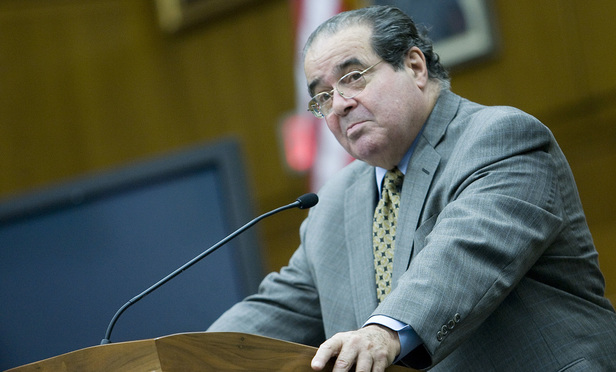Eleven years ago this month, a dissenting Justice Antonin Scalia argued that the Federal Communications Commission should regulate cable broadband providers as telecommunications services, not information services. The U.S. Supreme Court disagreed. The late justice’s vindication arrived June 14 in a major net neutrality ruling. A three-judge panel of the U.S. Court of Appeals for the D.C. Circuit in United States Telecom Association v. FCC upheld the agency’s decision to reclassify broadband as a telecommunications service.
Scalia, who died Feb. 13, had been general counsel of the Nixon administration’s Office of Telecommunications Policy, where he played a significant role in formulating federal policy for the growth of cable television. “He really, really knew this stuff,” said Andrew Schwartzman of Georgetown University Law Center’s Institute for Public Representation.Scalia’s dissent a decade ago, joined by Justices David Souter and Ruth Bader Ginsburg, came in National Cable & Telecommunications Service v. Brand X Internet Services. In that case, the 6-3 majority, led by Justice Clarence Thomas, agreed with the FCC’s conclusion that cable modem companies were “information service” providers. But Scalia found the FCC’s position “implausible” and “beyond its statutory authority.” He wrote: “After all is said and done, after all the regulatory cant has been translated, and the smoke of agency expertise blown away, it remains perfectly clear that someone who sells cable-modem service is ‘offering’ telecommunications.”




